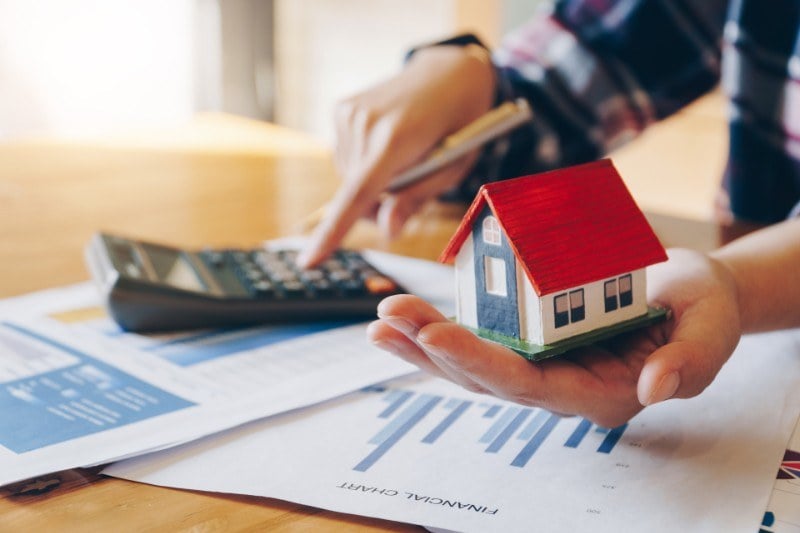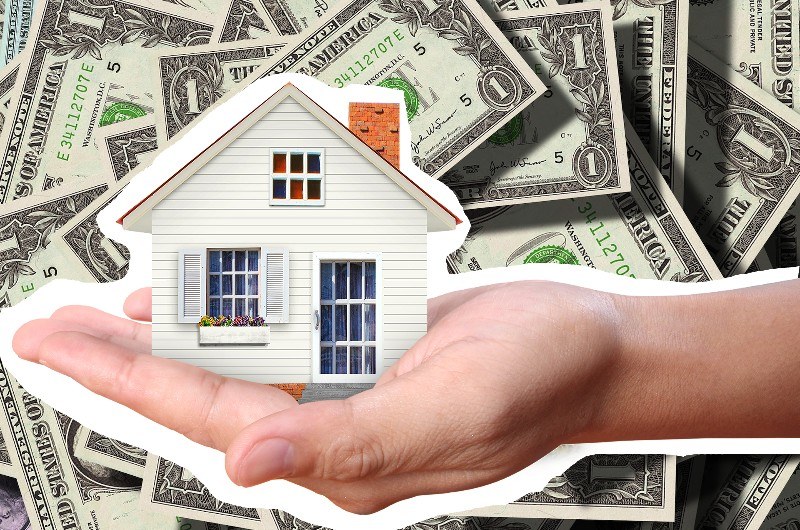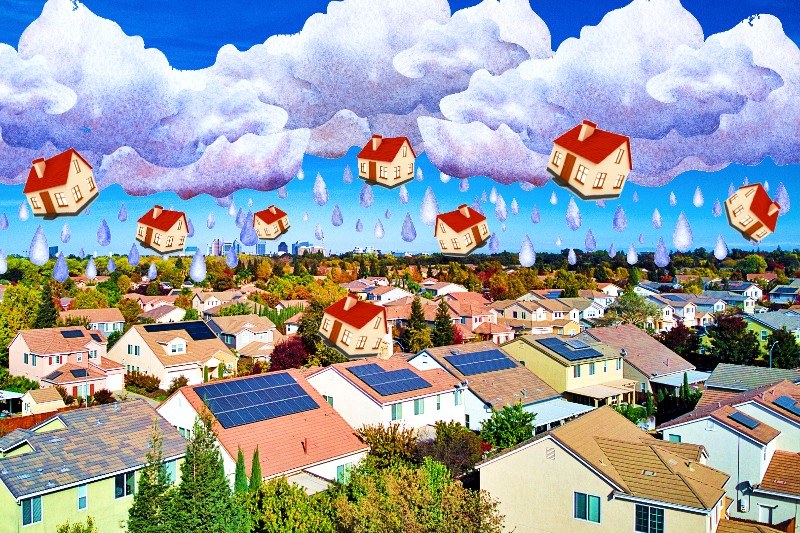
Is 2024 a Good Year to Buy a House? 9 Tips for Homebuyers
Posted on Jul 14, 2023
Note: This article is a rewrite from 2023, updated for current market conditions. If you know one...

Posted on Jul 14, 2023
It’s a tough housing market for first-time homebuyers. Not only have home prices continued to rise - mortgage rates also shot up. As a result, the average monthly mortgage payment for a typical U.S. home has grown by 50% since January 2022.
If this is your first time buying a home, you might be wondering what to expect from your monthly mortgage payment. If it seems confusing, that’s because it is! Here’s what you need to know about finding a $200,000 home, as well as what you should expect to pay for it.
So what's the right down payment for a $200,000 house? A lot of people opt to put down less than 20% because they don’t want to wait years to buy a home - especially when prices keep going up. It’s often easier to pay off PMI (private mortgage insurance) for a couple of years than it is to deal with ever-increasing rental prices. On the other hand, the more money you put down, the less interest you pay to borrow.
On average PMI is about 1% of the loan amount annually, so if you put down 3% and borrow $194,000, your PMI will be around $160 per month. However, PMI can be as low as .5%.
So let’s explore what your monthly payment would be with different down payment options, assuming a 7% interest rate, a Philadelphia zip code (taxes matter - keep scrolling down to find out more), and a credit score of 740+ using NerdWallet’s mortgage calculator.
The more you put down, the lower your monthly payment will be. However, PMI eventually disappears once you have 20% equity in your home.
So now let’s consider the interest rate. The days of 3% are over and likely not coming back in our lifetime, but we will probably see rates fluctuate by .5% or even 1-2% over the next several years. Buyers can also buy down their rate. Here’s how that impacts monthly payments.
(We’ll assume 10% down since that is closer to the average for first-time homebuyers.)
As you can see, each 1% rate increase corresponds to about a $100 increase in the monthly payment.
If you’re wondering how your credit score will impact your monthly payment, the numbers will often resemble the above change in interest rates - because a higher credit score corresponds to a lower interest rate from lenders.
As a basic though imprecise rule of thumb, a 100-point drop = a 1% increase in mortgage rate.
Because of the current rate environment, we would not typically advise buying a home if you have a low credit score. Why?
Taxes are something worth paying attention to if you’re trying to save money, because if you’re not set on a particular neighborhood, simply opting for a slightly different location can potentially save you hundreds of dollars a year.
This is something you’ll want to discuss with a local Realtor for two reasons:
Here’s how this can look for a $200,000 home.
Haddonfield is right across the river from Philadelphia, just a few minutes drive away. However, NJ has some of the highest property taxes in the country.
Let’s take a trip South to see what the taxes are like in Florida.
So just by changing location, you can save money every month - something to keep in mind when we don’t know when (if ever) interest rates will significantly come down.
In case you haven’t caught on yet, the reality is that there is no one number for what it takes to afford a $200,000 home. The same $200,000 home can be affordable for one person, and out of reach for the next due to their credit score, existing debt, etc.
However, here are a few possible scenarios of how much you would need to make (at minimum) assuming a high credit score.
This amount assumes the borrower and the lender are comfortable with a maximum 43% debt-to-income ratio. Sometimes a lender will prefer a borrower to stay closer to 36%; buyers themselves may prefer this if they want to have more financial wiggle room, especially if they have future purchases planned (like a new car) and need to be approved later on for a car loan.
This also assumes no existing debt. What if you had a $200 car payment per month, and $200 in student loan payments?
Now what if you only put the minimum amount down (3%)?
If you don’t currently have the minimum salary needed, then saving up for the down payment can help lower your monthly payment - which allows you to afford more home in the future.

As you may know, buying a house isn’t “free” - beyond the monthly mortgage payment, there will be a number of expenses you’ll be responsible for upfront. You’ll have the down payment (which is at least 3% of your home’s purchase price) as well as closing costs.
Although closing costs vary widely depending on where you live, which home you buy, etc., in general, you’ll pay 3% - 6% of the loan amount. Check out this closing cost guide to get an idea of the breakdown of these costs, but it includes things like mortgage origination fees, prepaid property taxes, the home inspection, etc.
So if you’re buying a $200,000 home and paying 3-6% in closing costs, that equates to $6,000-$12,000.
On top of this, you’re not going to move into your new home with zero dollars in the bank. Obviously that would be an incredibly risky thing to do since things can and do go wrong - both with the home or with your own life. One of the downsides of homeownership is that you no longer have a landlord who will take care of replacing the air conditioner if it breaks down; you’ll need to pay for it yourself.
Experts recommend having 1% of the home’s price set aside to cover maintenance costs each year, as well as a minimum of three months’ living expenses. This is so that even if you lose your job or have something like unexpected car repair bills, you’ll still be able to cover your mortgage in the meantime.
If your monthly mortgage payment is $1,760, and assuming you could get by each month with the same amount in other living expenses (groceries, gas, utilities, etc.) then you want to have a minimum of $10,560 in the bank to cover your costs (3x mortgage, and 3x other living expenses).
So if we add 3 months' living expenses + minimum closing costs + minimum down payment, you’d need a minimum of $22,560 in the bank to buy a $200,000 house.
For many areas of the U.S., a $200,000 is now difficult to find - at least, if you want a home with a working bathroom and a hole-free roof. However, there are a few approaches you can take.
Two different families can both buy a $200,000 home and have different monthly payments and different income requirements, depending on individual financial factors.
By negotiating the purchase price, securing a lower interest rate, and/or putting down a larger down payment, you can potentially save thousands of dollars over the life of your mortgage - making it easier to afford a $200,000 home.
So, before you dive headfirst into homeownership, take some time to do the math and make sure you're making the smartest financial decision for your unique situation.
Subscribe to our newsletter to get essential real estate insights.

Posted on Jul 14, 2023
Note: This article is a rewrite from 2023, updated for current market conditions. If you know one...

Posted on Jul 14, 2023
Note: This article is a rewrite from 2023, updated for current market conditions. Are home prices...

Posted on Jul 14, 2023
Over the past several years, the average cost of buying a home has skyrocketed in most areas of the...